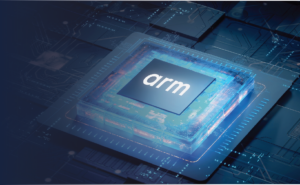DULUTH, GEORGIA – AMI®, a global leader in powering, managing and securing the world’s connected digital infrastructure through its BIOS, BMC and security solutions, is pleased to announce support for Intel Memory Resilience Technology capabilities in its Aptio® V UEFI Firmware and MegaRAC® BMC Firmware.
Intel Memory Resilience Technology, optimized for Intel Xeon Scalable platforms, is specifically designed to improve customers’ datacenter uptime and total cost of operation (TCO) by predicting DDR4 memory failures. For Aptio V UEFI Firmware, the Intel Memory Resilience Technology solution comes in the form of the IntelMfpSupport eModule and includes OEM IPMI command additions. For MegaRAC BMC Firmware this support is available as an Option Pack, which includes code to process the memory errors complemented by the DIMM Health Assessment Model (DHAM) from Intel, along with periodic module updates.
As part of this initiative, AMI is authorized to provide the same world-class technical support for the Aptio V eModule and the MegaRAC Option Pack that is represented by all AMI products. Moreover, both AMI and Intel will continue to offer information and training for customers considering integration of these value-added firmware solutions.
The Benefits of Intel Memory Resilience Technology
DIMM failures are one of the most common causes of server downtime, notorious for severely impacting system reliability, availability and serviceability (RAS). These failures can be caused by a wide range of sources beyond normal use, such as manufacturing defects or extreme environmental or operating conditions. While currently accepted techniques such as Error Correcting Code (ECC) and correctable errors threshold-based Predictive Failure Analysis (PFA) help overcome some correctable errors with DIMM, they have cost, reliability, coverage and performance implications – and cannot help to overcome uncorrectable errors.
As a more complete solution, Intel Memory Resilience Technology features several innovative and original capabilities. It predicts micro-level failures in rows, columns and cells based on historical data, using a low-overhead online learning method to improve its prediction accuracy and avoid interfering with critical compute tasks. This also enables Intel Memory Resilience Technology to generate an estimated memory health score for proactive memory failure management.
For data centers and cloud service providers, the benefits of adding Intel Memory Resilience Technology support in Aptio V UEFI Firmware and MegaRAC BMC Firmware are clear and immediate. Datacenter service level agreements (SLA) are improved, DIMM failure rates are reduced through proactive memory health evaluation and enhanced memory page offlining policies, and most importantly, higher DIMM performance and reliability optimizes workload and VM migration decision-making to boost efficiency, flexibility and TCO.
To highlight the benefits of Intel Memory Resilience Technology in the datacenter, an Intel case study conducted with Tencent, the leading provider of cloud services in the APAC region, identified a five-fold improvement in DIMM failure prediction and reduced downtime, as well as fewer unnecessary DIMM replacement and upgrade expenses. A similar case study carried out by Intel with Meituan, the leading eCommerce services provider in the APAC region, revealed that Intel Memory Resilience Technology could enable Meituan to reduce server crashes caused by memory failure by up to 40% through intelligent analysis of server memory health and proactive memory failure prediction.
Sanjoy Maity, Chief Executive Officer of AMI, commented that “AMI is committed to adopting ground-breaking technologies from industry drivers like Intel that make our products more relevant and effective for datacenter and cloud services end-users. This commitment has been a key component of our long-standing and successful relationship with Intel from the very beginning. Now, our new Aptio V IntelMfpSupport eModule and MegaRAC BMC Firmware Option Pack featuring lntel Memory Resilience Technology support are a simple and effective way for OEMs and ODMs to add enhanced DDRAM failure prediction capabilities into their designs and deliver the improved RAS and SLAs that their customers demand.”
“Improving server uptime and lowering TCO is a core component of our mission to support the data center and cloud services ecosystems,” said Jeff Klaus, General Manager, Data Center Management Solutions Group at Intel. “AMI’s distribution and support for Intel Memory Resilience Technology in its Aptio V UEFI and MegaRAC BMC firmware solutions will help data center operators focus on delivering differentiated services and help avoid costly, disruptive memory failure-related downtime.”
For more information on the Aptio V IntelMfpSupport eModule and MegaRAC BMC Firmware Option Pack featuring Intel Memory Resilience Technology capabilities, please call 1-800-828-9264 to speak with an AMI expert or contact us via ami.com/contact.
Intel, the Intel logo, and other Intel marks are trademarks of Intel Corporation or its subsidiaries. Memory failure prediction results provided through the use of Intel Memory Resilience Technology are estimated and may vary based on differences in system hardware, software, or configuration. Results are derived using multi-dimensional models and algorithms to predict potential memory failures and do not constitute a representation or guarantee regarding memory failure.






